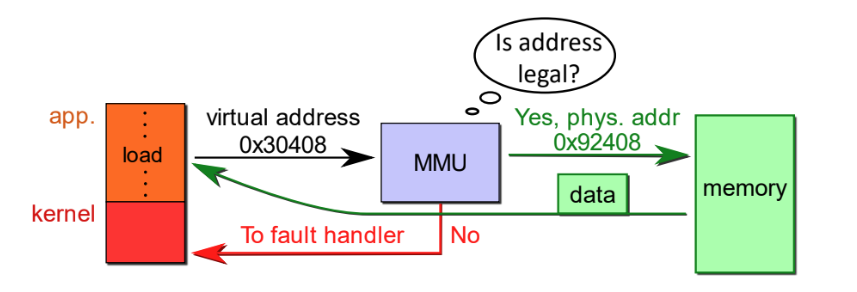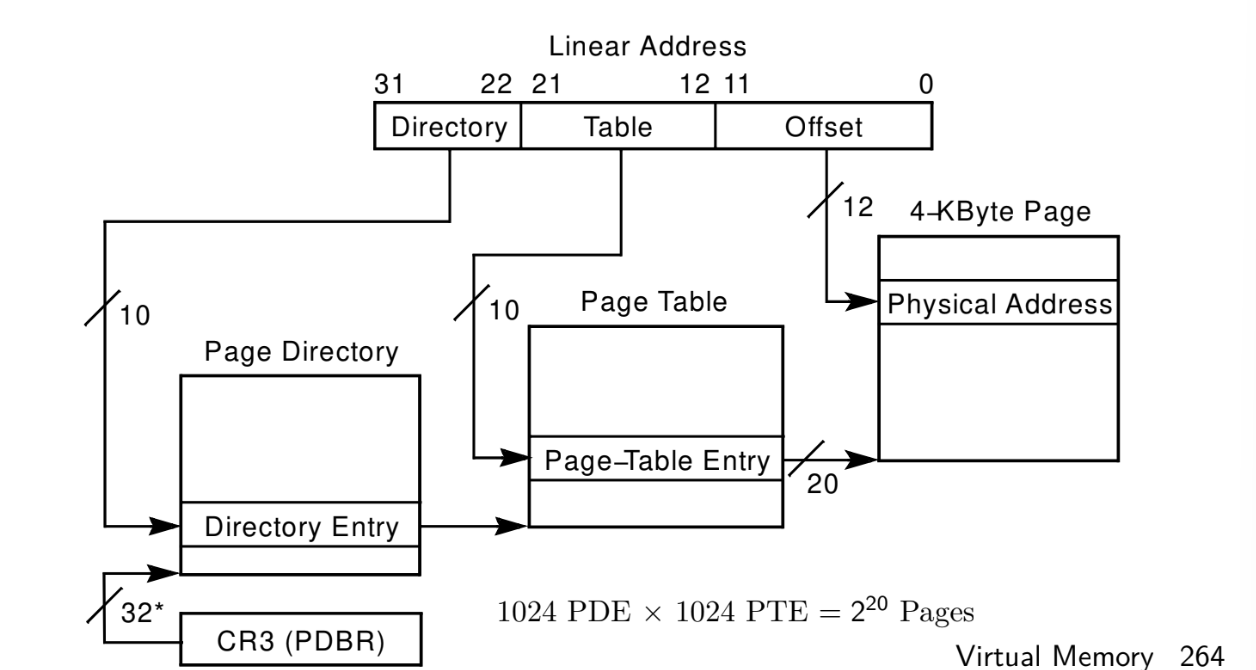Memory Management Unit

- Maps virtual address to physical address
- Enforces protection
- Prevents one app from messing with another app’s memory
- Allows programs to see more memory than exists
- Maps some memory accesses to Secondary storage
Software Managed
- Simpler hardware which asks software to reload pages
- Requires fast exception handling and optimized software
- Enables more flexibility in the TLB
MIPS MMU
- Hardware has 64-entry TLB
- TLB Entries: 64-bit
- PID: Process ID
- Allows multiple processes to use TLB
- N: No Cache
- D: Writeable
- V: Valid
- G: Global
- Pages shared across all address spaces
- PID: Process ID

MIPS TLB Instructions
tlbwr: TLB write a random slottblwi: TLB write a specific slottlbr: TLB read a specific slottlbp: Look for the entry that matchesc0_entryhi
Need to load information into registersc0_entryhi: high bits of TLB entryc0_entrylo: low bits of TLB entryc0_index: TLB Index
Exceptions
UTLB Miss
- user segment page number not found in TLB
TLB Miss - kernel segment page number not found in TLB
TLB Mod - Generated when writing to read-only page
UTLB handler is separate from general exception handler
- UTLBs are very frequent and require a hand optimized path
Hardware lookup algorithm
- If the most significant bit is 1 and in user mode → address error exception
- virtual address ≥ 0x8000 0000 (kernel memory)
- If no VPN match → TLB/UTLB miss exception
- If PID mismatch and global bit not set → TLB/UTLB miss
- If valid bit not set → TLB/UTLB miss
- Write to read-only page → TLB mod exception
- If N b it is set → directly access device memory
Hardware Managed
- Hardware reloads TLB with pages from a page table
- Typically hardware page tables are Radix Trees
- Requires complex hardware
x86
TLB managed by Hardware and Microcode
- Two levels of TLBs each acting as a cache
- TLB automatically reloaded from page table by processor
OS builds Radix tree describing memory layout
Contains much of the same information as MIPS - Global page
- all processes can access it
- Accessed
- whether the page has been accessed recently
- Cache disabled
- do not store in cache
- Write-through
- enable write-through
- User/Supervisor
- privilege needed to access page
- Read/Write
- is the page writeable
- Present
- in RAM rather than is swap space on the SSD
Directories ignore the global page bit
Specifies page size instead of Page Table Attribute
- in RAM rather than is swap space on the SSD
x86 Paging
Normally 4KB pages
- Page directory
- 1024 PDEs (page directory entries)
- Each contains physical address of a page table
- Page table
- 1024 PTEs (page table entries)
- Each contains physical address of virtual 4K pages
